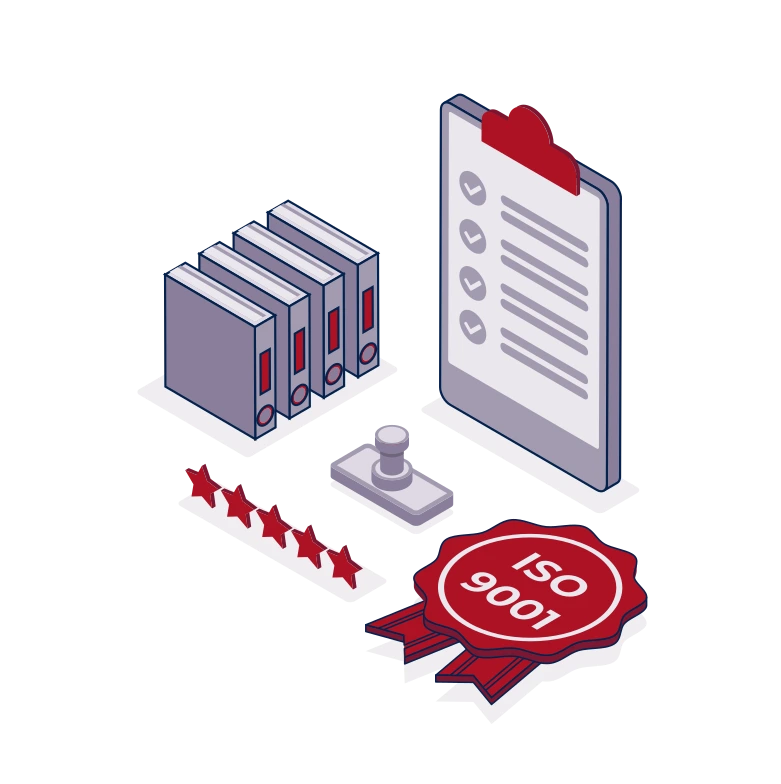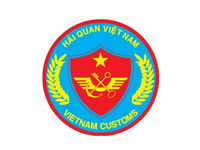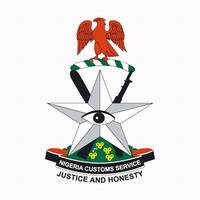Freight Shipping between Vietnam and Nigeria | Rates – Transit times – Duties and Taxes
Ever tried wrestling an octopus? Well, arranging shipments from Vietnam to Nigeria may feel similarly challenging! Amid multiple facets like comprehending rates, calculating transit times, and deciphering complex customs regulations, shipping can quickly become a high-stakes puzzle. Fear not! This guide is your companion, designed to demystify this process. We'll dive deep into various freight options, unwrapping the nitty-gritty of customs clearance, duties, and taxes. You'll gain valuable insights and advice tailored to assist businesses like yours in making informed decisions. If the process still feels overwhelming, let FNM Vietnam handle it for you! With our expertise as an international freight forwarder, we turn potential shipping nightmares into success stories for businesses.
Which are the different modes of transportation between Vietnam and Nigeria?
Which are the different modes of transportation between Vietnam and Nigeria? Imagine trying to walk to a friend's house, but they live 100 miles away. You'd likely opt for a car, bus, or plane instead. Similarly, when moving goods from Vietnam to Nigeria, it's essential to pick the best, most efficient way. Due to the vast ocean separating these two nations, traditional road transport is off the table. That leaves us with air and sea freight - two powerful workhorses in the world of international logistics. Deciding which to choose is a balance between speed, capacity, cost, and what you're shipping. Let's delve into these options.
Need help with your shipment?
Need assistance with your shipment? Dont hesitate to contact us even for a simple question. Choose the option that suits you
Live chat with an expert Chat on WhatsApp Free Quote 24hHow can FNM Vietnam help?

Sea freight between Vietnam and Nigeria
Stepping into the arena of international shipping, the trade connection between Vietnam and Nigeria emerges as a bustling network, woven together by the sea. Picture mammoth vessels on the South China Sea and Gulf of Guinea, brimming with goods poised for marketplaces that are oceans apart. Key nodes are the cargo ports of Ho Chi Minh City and Lagos, bustling hives of trade linking essential industrial centers.
Though sea freight may be slow, think of it as a river gradually winding its way to sea—a cost-effective choice for shipping high-volume goods. But, just as each river has its rapids, this shipping avenue isn’t without its challenges. Many businesses grapple with complexities and unwittingly make mistakes while navigating these waters. But fret not! Like the lighthouse guiding ships ashore, this section serves as a beacon, illuminating best practices and specific strategies making the process more manageable. If shipping between Vietnam and Nigeria seems like deciphering an ancient map, consider this your guide to buried treasure!
Main shipping ports in Vietnam
Port of Haiphong:
Location and Volume: Haiphong, the key Northern gateway for Vietnam, is strategically positioned close to the Chinese border. It boasts a shipping volume of approximately 1.22 million TEU.
Key Trading Partners and Strategic Importance: Haiphong is the main maritime link for Northern Vietnam, with China, South Korea, and Japan being their strategic trading partners. The port and the city of Haiphong themselves are major industrial and economic centers.
Context for Businesses: If your shipment strategy involves expanding your reach to China, South Korea, or Japan, the Port of Haiphong should be considered given its proximity to these markets.
Port of Ho Chi Minh City:
Location and Volume: Vietnam’s largest city, Ho Chi Minh City, is linked with its own port, which handles about 4.3 million TEU annually.
Key Trading Partners and Strategic Importance: The port of Ho Chi Minh City is a hub for trading with the United States, China, Hong Kong, and Singapore. It has a notable strategic importance due to its well-connected road, rail, and waterway networks.
Context for Businesses: If your business focuses on expanding across the wider Southeast Asian market or East Asia, the Port of Ho Chi Minh City offers a highly strategic access point.
Port of Da Nang:
Location and Volume: Located centrally on Vietnam’s east coast, the Port of Da Nang handles more than 3 million tons of cargo every year.
Key Trading Partners and Strategic Importance: Da Nang is particularly important for trade with neighboring Asian countries. Its location is strategically vital for access to the Central Highlands and Laos.
Context for Businesses: If your business is consolidating trade into or from the central regions of Vietnam, then the Port of Da Nang is likely to be a key element in your strategy.
Port of Quy Nhon:
Location and Volume: Located in Binh Dinh province in Vietnam’s central coast, the Port of Quy Nhon handles nearly 8 million tons of cargo annually.
Key Trading Partners and Strategic Importance: Key trading partners include China, South Korea, Japan, and Australia. The port is essential in facilitating an active global trade route.
Context for Businesses: If you’re looking to penetrate markets in central Vietnam and have dealings with countries like Australia, leveraging the Port of Quy Nhon could prove advantageous.
Port of Nghi Son:
Location and Volume: Nghi Son Port, based in the northernmost part of Central Vietnam, sport a daily discharge rate of about 3,000 tons.
Key Trading Partners and Strategic Importance: In addition to local trade, it is primarily involved in export to China, South Korea, and Japan. Nghi Son plays a crucial role in facilitating the export of bulk products.
Context for Businesses: If you are a business that primarily deals in bulk products such as coal, ore or grain, the Port of Nghi Son should form a part of your logistics strategy due to its supportive infrastructure.
Port of Cai Mep:
Location and Volume: Located in the south of Vietnam, Cai Mep International Terminal is a part of the larger Cai Mep port complex, handling around 2.2 million TEU in 2020.
Key Trading Partners and Strategic Importance: The port is a key logistics point for trade with the United States and the European Union. Its deep-sea capabilities make it a strategic platform for large container ships.
Context for Businesses: If your business operations require the use of large container ships, the Cai Mep Port might be indispensable to your logistics, owing to its modern facilities and deep-sea capabilities.
Main shipping ports in Nigeria
Port of Lagos
Location and Volume: Located on the southwestern corner of Nigeria, Port of Lagos is the largest port in West Africa with a shipping volume of 1.5 million TEUs annually.
Key Trading Partners and Strategic Importance: This port serves as a vital link between Nigeria and countries like China, United States, and India, handling over 80% of the country’s imports. The port is well connected with multiple railways and road networks, making it strategically crucial for the country’s foreign trade.
Context for Businesses: If you’re looking to break into the West African market, leveraging the capabilities of Port of Lagos could be pivotal. It offers easy market access due to its extensive connections, and its high handling capacity can accommodate increasing volumes of goods.
Onne Port
Location and Volume: Situated in the Niger Delta, Onne Port facilitates a significant share of Nigeria’s oil and gas industry. It accommodates over 250,000 TEUs annually.
Key Trading Partners and Strategic Importance: With specialized terminals for handling oil and gas, Onne Port is a critical component of Nigeria’s energy export to primary consumers like India, Europe, and the United States.
Context for Businesses: Onne Port could be instrumental if your business is associated with energy commodities. With its specialized capabilities, it can provide efficient handling and loading of these products for international shipping.
Calabar Port
Location and Volume: Located at the southeastern coastline of Nigeria, Calabar Port is the oldest port in West Africa, handling approximately 2,000 TEUs annually.
Key Trading Partners and Strategic Importance: Calabar Port predominantly deals with imports of goods such as cement, wheat, and frozen fish. It also exports goods like cocoa and palm oil.
Context for Businesses: If your business revolves around agricultural or construction commodities, Calabar Port can support efficient transportation of these goods. Its unique location provides a direct route to Eastern and Central African countries.
Should I choose FCL or LCL when shipping between Vietnam and Nigeria?
Choosing between Full Container Load (FCL) and Less than Container Load (LCL), also termed as consolidation, for your sea freight from Vietnam to Nigeria can seem like a daunting task. Each option has its unique advantages impacting cost, delivery time, and overall performance of the shipping process. Making the right decision is critical to the efficiency of your operations. This guide aims to unravel the complexities, helping you choose a path that aligns best with your shipping needs. Let’s demystify these terms and embark on your journey towards informed decision-making.
Full container load (FCL)
FCL shipping, or Full Container Load shipping, is when an entire 20'ft or 40'ft container is utilized by a single shipper for their shipment. FCL offers a sense of security as the container remains sealed from collection at origin to delivery at destination.
Opt for FCL when your cargo volume exceeds 13/14/15 CBM. It's economical for large volumes, as you pay a flat rate for the entire container rather than per cubic meter. For example, if you're exporting furniture from Ho Chi Minh City to Lagos, and your cargo fills up more than half a 40'ft container, FCL would be cost-effective and safer.
Cost implications vary based on factors like the type of goods, insurance, and charges at the ports. However, an FCL shipping quote normally comes cheaper than LCL for larger volumes. It reduces the cost per unit and offers an economical solution for high-volume shipments. Remember, the more space your goods need, the more you save with FCL.
Less container load (LCL)
Definition: LCL, or Less than Container Load, refers to a method of shipping where your goods share container space with others. It's essentially a freight consolidation service.
When to Use: An LCL shipment is your best bet when your cargo is less than 13/14/15 cubic meters (CBM). This practice offers price flexibility and is ideal for low-volume shipments that don't fill an entire container.
Example: Imagine you are exporting handcrafted Vietnamese bamboo furniture to Nigeria and your volume is 10 CBM. Instead of paying for a full container that remains empty, you consolidate your goods into a shared container (LCL freight), reducing the shipping costs.
Cost Implications: The primary cost advantage of LCL shipping is you only pay for the volume your goods occupy, not the entire container. However, additional costs can be incurred for the handling and management of consignments including deconsolidation at the destination. It's best to request an LCL shipping quote from your freight forwarder for an accurate estimate.
Hassle-free shipping
Struggling to decide between consolidation or full container shipping from Vietnam to Nigeria? Let FNM Vietnam take the helm. As expert freight forwarders, we're committed to making your cargo shipping process as seamless as possible. Our ocean freight team assesses key factors such as your cargo type, volume, and time constraints to guide you towards the best choice. Ready to simplify your shipping? Request your free estimate today and let's make global trade effortless!
On average, sea freight takes approximately 30-40 days to transit between Vietnam and Nigeria. This estimate, however, can vary significantly according to certain factors. These include the chosen shipping ports, the weight and nature of your goods, among others. To get a more accurate and tailored quote, it’s highly recommended to reach out to a reliable freight forwarder such as FNM Vietnam.
Below is a general overview of average transit times from the primary sea freight ports in both Vietnam and Nigeria:
| Vietnam Ports | Nigeria Ports | Average Shipping Time (days) |
| Port of Cai Mep | Lagos Port | 30 |
| Port of Hai Phong | Tin Can Island Port | 31 |
| Port of Da Nang | Rivers Port | 33 |
| Port of Qui Nhon | Calabar Port | 40 |
*Please note that these are estimated times and can vary according to other factors. To ensure the best possible service, enlisting the help of a freight forwarder can greatly assist in negotiating the complexities of international logistics.
How much does it cost to ship a container between Vietnam and Nigeria?
Defining an absolute cost for shipping a container from Vietnam to Nigeria is like nailing down a cloud – it’s simply not feasible. Ocean freight rates, for instance, can sway wildly due to diverse variables. These include Points of Loading and Destination, the nature of your goods, chosen carrier, and unpredictable market flux. But don’t let that discourage you! Our adept shipping specialists are primed to wrestle with these variables, molding them to your favor. By assessing each shipment on a case-by-case basis, they’re able to negotiate top-notch shipping cost, tailor-made just for your business.
Special transportation services
Out of Gauge (OOG) Container
Definition: OOG containers are oversized shipping containers that are designed to accommodate Out of gauge cargo or goods that do not fit within the dimensions of a standard shipping container.
Suitable for: Heavy machinery, industrial equipment or construction materials that exceed standard container dimensions.
Examples: Transporting turbines, tractors, or fabricated structures from Vietnam to Nigeria.
Why it might be the best choice for you: If your business deals with machinery or material that is substantially large or high, an OOG container could provide the needed flexibility for your international shipping requirements.
Break Bulk
Definition: Break Bulk ships carry cargo as individual units or packages rather than in containers.
Suitable for: Goods that are too large, heavy or oddly shaped to fit in standard shipping containers.
Examples: Oil equipment, industrial generators or heavy plant machinery being shipped between Vietnam and Nigeria.
Why it might be the best choice for you: If conventional shipping methods can’t accommodate your cargo due to its size or form, utilizing break bulk can handle your transportation needs.
Dry Bulk
Definition: Dry bulk shipping is a method for transporting loose cargo load in bulk quantities, which is neither containerized nor unitized.
Suitable for: Dry commodities including grains, coals, steel, or minerals.
Examples: Transporting rice, coal, or sand between Vietnam and Nigeria.
Why it might be the best choice for you: If your business deals with large quantities of dry cargo such as grains or minerals, dry bulk shipping could offer an effective and efficient solution.
Roll-on/Roll-off (Ro-Ro)
Definition: Ro-ro vessels use built-in ramps allowing vehicles to be driven on and off the ship on their own wheels.
Suitable for: Motorized vehicles, trailers, or heavy equipment on wheels.
Examples: Exporting cars, buses, or tractors from Vietnam to Nigeria.
Why it might be the best choice for you: If you’re in automotive or construction business and need seamless transit for your vehicle-based cargo, Roll-on/Roll-off method can provide convenience and efficiency.
Reefer Containers
Definition: Reefer containers are refrigerated shipping containers used for the transportation of perishable goods.
Suitable for: Foods, pharmaceuticals, or other temperature-sensitive commodities.
Examples: Chilled seafood, frozen food products, or pharmaceutical products going from Vietnam to Nigeria.
Why it might be the best choice for you: If your business involves perishable goods or temperature-sensitive commodities, these refrigerated containers could guarantee that your cargo arrives fresh and intact.
Are you looking to ship goods between Vietnam and Nigeria? At FNM Vietnam, with our comprehensive sea shipment expertise, we’re committed to delivering your goods efficiently and effectively. Get in touch with our team for a free shipping quote within 24h. We’re here to guide you to choose the right shipping method tailored to your business needs.
Air freight between Vietnam and Nigeria
Air freight between Vietnam and Nigeria offers speed, reliability, and cost-efficiency for shipping small, high-value items—the kind you can’t afford to be stuck in transit. Traditional Vietnamese arts and crafts or high-tech electronic components, perhaps, find an apt transport buddy in air freight.
However, shipping angels can quickly turn into costly devils if you’re not mindful. One such common pitfall is incorrect weight estimation. Ignoring the dimensional weight formula—one that includes both the size and weight of your package in calculation—often leads to unexpected fees. Additionally, neglecting best practices, like not knowing the intricacies of the customs regulations, can lead to hefty fines or delay. It’s not only about choosing air freight—it’s about mastering it. In this guide, we will dive into these vital aspects to help you get the most out of your cargo journey.
Air Cargo vs Express Air Freight: How should I ship?
Deciding on the best means to ship your goods from Vietnam to Nigeria is a make-or-break concern for savvy businesses. The two most popular options – regular air cargo aboard commercial flights and express air freight via dedicated cargo planes have their merits. But how do they stack up against your unique needs? The regular air cargo makes use of excess capacity on passenger flights, while express air freight buys you space on planes devoted to rush deliveries. Which one’s for you? Let’s dive in.
Should I choose Air Cargo between Vietnam and Nigeria?
Air cargo, with its blend of cost-effectiveness and reliability, might be a constructive choice for your shipping needs, particularly when the cargo exceeds 100/150 kg (220/330 lbs). Despite longer transit times due to fixed schedules, airlines like Vietnam Airlines and Arik Air offer comprehensive freight services in Vietnam and Nigeria respectively. Visit the official websites of Vietnam Airlines and Arik Air to explore. Do consider, if capital allows, this method could significantly streamline your logistic operations.

Should I choose Express Air Freight between Vietnam and Nigeria?
Choosing Express Air freight, a specialized service utilizing cargo-exclusive planes, may work best if your Vietnam-Nigeria shipment is under 1 CBM or 100/150 kg (220/330 lbs). This is a rapid, efficient solution often preferred for high-value, time-sensitive cargo. Reputed courier firms like FedEx, UPS, or DHL offer this service, assuring swift, secure delivery. If speed is crucial, and your load is within the stipulated weight, this solution can effectively match your shipping needs.

Main international airports in Vietnam
Tan Son Nhat International Airport
Cargo Volume: Handling over 600,000 tons yearly, Tan Son Nhat is Vietnam’s primary air freight hub.
Key Trading Partners: Major destinations include Japan, China, South Korea, and Taiwan.
Strategic Importance: Its position in southern Vietnam and its proximity to Ho Chi Minh City make it a crucial point for both domestic and international shipments.
Notable Features: Tan Son Nhat has comprehensive freight services from storage facilities to logistics support. Furthermore, it contains Vietnam Airlines’ cargo terminal.
For Your Business: If your primary target markets are in the East and Southeast Asia regions, Tan Son Nhat offers frequent, reliable service.
Noi Bai International Airport
Cargo Volume: Processes approximately 650,000 tons of freight each year, roughly on par with Tan Son Nhat.
Key Trading Partners: Important connections include Japan, China, South Korea, Singapore, and Taiwan.
Strategic Importance: Being the international gateway to the capital, Hanoi, Noi Bai Airport plays a crucial role in North Vietnam’s trade.
Notable Features: Noi Bai Airport is home to NCTS cargo terminal, providing comprehensive services including bonded storage. The airport is also embarking on development projects to expand cargo capacity.
For Your Business: Should your company rely heavily on exports to Northeast Asia, Noi Bai provides a strategic point of entry to these markets.
Da Nang International Airport
Cargo Volume: Currently handles around 50,000 tons annually.
Key Trading Partners: Key destinations include Japan, South Korea, and other Southeast Asian countries.
Strategic Importance: Da Nang is situated in Central Vietnam, making it an integral hub for domestic transit and an important point to dispatch goods internationally from the central region.
Notable Features: Despite its smaller size compared to Noi Bai and Tan Son Nhat, Da Nang International Airport is undergoing continuous modernization and expansion works to improve its infrastructure.
For Your Business: If your logistics network relies on transits through Central Vietnam and exports to East Asian markets, including Da Nang in your route could streamline your operations.
Cam Ranh International Airport
Cargo Volume: Smaller than the first three, Cam Ranh handles over 20,000 tons of goods every year.
Key Trading Partners: Primary cargo routes lead to Russia, alongside other Asian countries.
Strategic Importance: As one of the most important airports in the country for tourism, Cam Ranh has experienced remarkable cargo traffic growth in past years.
Notable Features: The airport is in the process of enlarging its cargo services, with new cargo storage and infrastructure developments.
For Your Business: If your business involves shipping perishable goods, such as seafood, Cam Ranh’s rapid routes to Russia, and growing capacity make it an ideal consideration.
Cat Bi International Airport
Cargo Volume: Although smaller in volume, handling about 13,000 tons yearly, Cat Bi is a growing player in Vietnam’s cargo landscape.
Key Trading Partners: Predominantly, cargo is shipped to China, Taiwan, South Korea, Japan, Singapore, Thailand, and Malaysia.
Strategic Importance: Located in Hai Phong City, Vietnam’s third-largest city, Cat Bi helps facilitate the commercial and industrial activity of the Northern Economic Zone.
Notable Features: Cat Bi has space dedicated for cargo activities with a commitment to expansion in response to increasing demand.
For Your Business: If your shipping needs involve any of Cat Bi’s primary routes, particularly to East and Southeast Asian markets, their increasing cargo expansion could offer promising opportunities for your trade.
Main international airports in Nigeria
Murtala Muhammed International Airport
Cargo Volume: Murtala Muhammed International Airport manages almost 65% of the nation’s international air cargo, making it the largest freight airport in Nigeria.
Key Trading Partners: Key trading partners include China, United States, India, Belgium, and Spain, which are all significant contributors to Nigeria’s import and export activities.
Strategic Importance: As Nigeria’s gateway to the world, this airport is strategically located in Lagos – Nigeria’s economic hub and plays a significant role in the country’s import-export activities.
Notable Features: The airport boasts a cargo terminal with modern and automated systems for speedy cargo handling. It also features several air freight companies providing both domestic and international cargo services.
For Your Business: If your shipping strategy demands high-frequency cargo flights and a broad range of trade destinations, Murtala Muhammed International Airport’s connections might be perfect for your business.
Nnamdi Azikiwe International Airport
Cargo Volume: This airport is responsible for a sizeable portion of Nigeria’s cargo traffic, with increasing volumes each year due to ongoing modernization efforts.
Key Trading Partners: Key trading activities predominantly involve nations such as United States, United Kingdom, China, and India.
Strategic Importance: Located in Abuja, the capital city, this airport’s strategic importance lies in its proximity to the political centre and north-central states.
Notable Features: It has a new terminal designed to accommodate modern wide-body aircrafts for cargo operations. Moreover, several renowned cargo carriers operate at this airport.
For Your Business: If you’re looking for an efficient and reliable air freight gateway to Nigeria’s north-central states and beyond, Nnamdi Azikiwe International Airport could provide the strategic advantage you need.
Mallam Aminu Kano International Airport
Cargo Volume: Though smaller in terms of cargo volume compared to Lagos and Abuja, it still plays a significant role in Nigeria’s cargo movement.
Key Trading Partners: Major trading partners include China, United Arab Emirates, and India.
Strategic Importance: Strategically located in the north-western region of Nigeria, the airport particularly benefits the agricultural sector, serving as a significant gateway for horticultural exports.
Notable Features: Apart from regular cargo services, it features cold storage facilities crucial for agricultural and perishable goods export.
For Your Business: If your business involves agricultural or perishable goods, then the specialized facilities at Mallam Aminu Kano International Airport can serve your needs in preserving product quality while ensuring speedy delivery.
Port Harcourt International Airport
Cargo Volume: This airport handles smaller amounts of cargo volume, but with investments in infrastructure and equipment, its capacity is growing.
Key Trading Partners: Key trading partners are primarily focused in the Middle East, Asia, and North America.
Strategic Importance: Its strategic location in the heartland of Nigerian Oil and Gas industry makes it an important cargo hub for these sectors.
Notable Features: It features cargo handling facilities equipped to serve oil and gas equipment as well as other general cargo.
For Your Business: If your business involves trade in the oil and gas sector, then the Port Harcourt International Airport’s specialized facilities may provide a competitive advantage for your shipping strategy.
Akanu Ibiam International Airport
Cargo Volume: It’s a smaller airport, but it plays a vital role in facilitating commerce in Nigeria’s south-east region.
Key Trading Partners: Prominent trading partners include China, Saudi Arabia, and the United Kingdom.
Strategic Importance: It connects the densely populated and industrious south-east Nigeria to the world, easing cargo movement to and from this region.
Notable Features: The airport is being upgraded with new cargo infrastructure to provide more efficient handling and storage.
For Your Business: If your business relies on hassle-free cargo movement in and out of South-East Nigeria, tapping into the Akanu Ibiam International Airport’s expanding facilities might be a smart move.
How long does air freight take between Vietnam and Nigeria?
Shipping goods from Vietnam to Nigeria by air freight generally takes around 6 to 9 days, but this can vary. The exact transit time is influenced by factors such as your chosen airports and the weight and nature of the goods in question. For precise and customized transit times, it’s best to consult with an experienced freight forwarder like FNM Vietnam.
How much does it cost to ship a parcel between Vietnam and Nigeria with air freight?
Air freight costs between Vietnam and Nigeria can widely vary, typically ranging between $3 and $8 per kg. The exact price is influenced by multiple factors, including distance from departure and arrival airports, dimension and weight of the parcel, and the nature of the goods. This is why we strongly believe in personalized service. Instead of a one-size-fits-all rate cage, we take the time to quote you on your specific scenario to ensure you receive the most competitive and accurate costs. Contact us today; you’ll receive a free, detailed quote tailored to your needs in less than 24 hours.
What is the difference between volumetric and gross weight?
Gross weight is the actual weight of your shipment, including packaging. It’s simply measured by weighing the entire shipment on a scale. On the other hand, volumetric weight, also called dimensional weight, takes into account the space your shipment occupies in the aircraft, in addition to its actual weight. It’s determined based on the package’s dimensions.
For Air Freight cargo, the formula to calculate the volumetric weight is Length (m) x Width (m) x Height (m) x 166.67. Let’s illustrate this with an example. Imagine a package of 0.5m x 0.4m x 0.3m and a gross weight of 4kg. The volumetric weight would be 0.5 x 0.4 x 0.3 x 166.67, equaling to 10kg, or 22lbs.
For Express Air Freight, the airline uses a different factor in the formula. Volumetric weight can be calculated as Length (cm) x Width (cm) x Height (cm) / 5000. Consider the same package size but this time measured in centimeters. The calculated volumetric weight would be 50 x 40 x 30 / 5000, which is 12kg or 26lbs.
Knowing both the gross weight and the volumetric weight of your shipment is crucial because air freight services charge based on whichever weight is higher. This is referred to as the chargeable weight and significantly impacts the shipping costs. This dual-consideration keeps the balance between weighty low-volume cargo and less weighty high-volume cargo to make air freight cost-effective and efficient.

Door to door between Vietnam and Nigeria
Dive into the next-level convenience of international Door to Door shipping! Imagine transporting goods from Vietnam to Nigeria without changing hands in-between – sounds nice, doesn’t it? Enjoy benefits like simplified logistics, reduced transit times, and minimized risks. Ready to discover more? Let’s dive in.
Overview – Door to Door
Imagine a hassle-free, end-to-end shipping solution from Vietnam to Nigeria. That’s what Door-to-Door shipping offers. Despite the complexities inherent in international transport, our most sought-after service aptly addresses these challenges. Picture this: a seamless journey for your goods, from the factory floor in Hanoi straight to your customer’s door in Lagos. Be aware, though, it’s not all smooth sailing – potential drawbacks such as higher costs and less control can deter some. Yet, clients continue to favour this method for its convenience and simplicity. A hands-off approach to logistics has never been this straightforward!
Why should I use a Door to Door service between Vietnam and Nigeria?
One might say that using a Door to Door service between Vietnam and Nigeria is like hiring a personal butler for your shipments – it just takes care of everything for you. Here are the top 5 reasons why you might want to consider it:
1. Kickback and Relax: The beauty of such a service is that it picks up your goods from the point of origin and handles everything until they reach their final destination. It’s a stress-free alternative that lets you focus on your business while the logistics are handled professionally.
2. Speedy Gonzales: Need your cargo yesterday? Well, we can’t time travel (yet), but Door to Door services are great for urgent shipments, as they help expedite the process and ensure a timely delivery.
3. Special Handling: Got an oddly shaped or fragile item? No problem! Specialty cargo gets specialist care. Every shipment is unique and, thus, treated as such in the Door to Door service.
4. Convenience is Key: The ‘to-and-fro’ to the port or airport is a non-issue since even the trickiest aspects of trucking to the final destination are taken care of. It’s just like ordering pizza – you don’t worry about the delivery guy’s route, do you?
5. Meticulous and Orderly: Want your cargo double-checked, inspected and clearances secured? Say no more! An innate part of this service isn’t just delivery but also managing operational and administrative procedures, including customs.
All in all, Door to Door service between Vietnam and Nigeria is the one-stop solution for your shipping needs, marrying simplicity with efficiency. Is it right for you? Only one way to find out!
FNM Vietnam – Door to Door specialist between Vietnam and Nigeria
Experience stress-free door-to-door shipping from Vietnam to Nigeria with FNM Vietnam. We’ve got you covered from packing to transport, customs clearance to delivery – whether by air, sea, road, or rail. Leave it all to us and our team of skilled professionals. Your dedicated Account Executive is ready to help, offering a free estimate in less than 24 hours. Need advice? Call our consultants at no cost. We’re here to make your shipping journey smooth and efficient.
Customs clearance in Nigeria for goods imported from Vietnam
Customs clearance—a critical juncture in international shipping—deciphers if your Vietnam-origin goods step into Nigeria glitch-free. This labyrinthine procedure, riddled with unexpected fees and unanticipated charges, calls for deep-rooted insight into customs duties, taxes, quotas, and licenses. Negligence here can leave your goods stranded in customs, causing hefty monetary and time setbacks. To navigate these murky waters, FNM Vietnam offers comprehensive assistance. Whether it’s textiles from Ho Chi Minh or furniture from Hanoi, relay to us your goods’ origin, value, and HS Code for a free estimation. Over the next sections, we pull back the curtain on the complex world of Nigeria’s customs clearance, empowering you to avoid pitfalls and costly delays. So let’s dive right in!
How to calculate duties & taxes when importing from Vietnam to Nigeria?
Understanding how to estimate duties and taxes for imports from Vietnam to Nigeria could save you unexpected costs and streamline your shipping process. The key components in this calculation include the Country of Origin, HS Code, Customs Value, Applicable Tariff Rate, and any other potential taxes and fees tied to your specific goods.
The valuable first step in this process is to pinpoint the country where your goods were manufactured or produced, not necessarily where they were bought. Why? Because shipment regulations and tariffs often hinge on this origin point, setting the foundation for the rest of the calculations. Let’s dive deeper into this step-by-step guide, and you’ll be a master in estimating import duties and taxes in no time.
Step 1 – Identify the Country of Origin
First off, recognizing the country of origin – in this case, Vietnam – is vital for five key reasons. Specific trade agreements, customs duties, import restrictions, product categories, and country-related considerations – all get tied back to this first step!
So, why pay attention to identifying Vietnam as your country of origin correctly? Your customs duties hinge on this! Both Vietnam and Nigeria have mutual trade agreements, which can flex your duty rates. A precise identity can help you leverage these benefits.
What about import restrictions? Certain Vietnamese goods may have explicit rules when importing into Nigeria. Knowledge here can save you from unnecessary hold-ups!
Accurate country identification becomes crucial for product categorization as well. You’ll need it to obtain your Harmonized System (HS) Code, an international product naming convention. It helps streamline your shipping process.
Lastly, information about production or assembly might influence your import duties. For some products, they consider not only where you produce them but also where their components come from.
In essence, unease and complexities in global trade can significantly reduce with careful attention to country of origin. Or as we say it – Know your where, to save your fair!
Step 2 – Find the HS Code of your product
The Harmonized System (HS) Code is an internationally standardized system of names and numbers that classify traded products. These codes are used by customs authorities globally to identify products and apply customs duties. Having the correct HS code for your product is crucial not only for establishing the amount of duty payable but also for ensuring smooth customs clearance.
If you’re uncertain about the HS code for your product, your first point of call should be your supplier. Most suppliers will be familiar with the products they’re exporting, including the corresponding HS codes and regulatory specifics.
However, if asking your supplier isn’t an option, don’t worry! We’re here to steer you through the process of how to identify your HS code. This can be done using an HS lookup tool, such as the Harmonized Tariff Schedule, follow these steps:
1. Open the Harmonized Tariff Schedule website.
2. Type your product name into the search bar.
3. Look for your product in the Heading/Subheading column—your HS code should be listed there.
An important note: Ensure your HS code is accurate. An incorrect code may not only result in delayed shipments but could also lead to potential fines. These figures aren’t just arbitrary numbers; they hold significant meaning within trade logistics, which your business operations depend on.
Here’s an infographic showing you how to read an HS code.
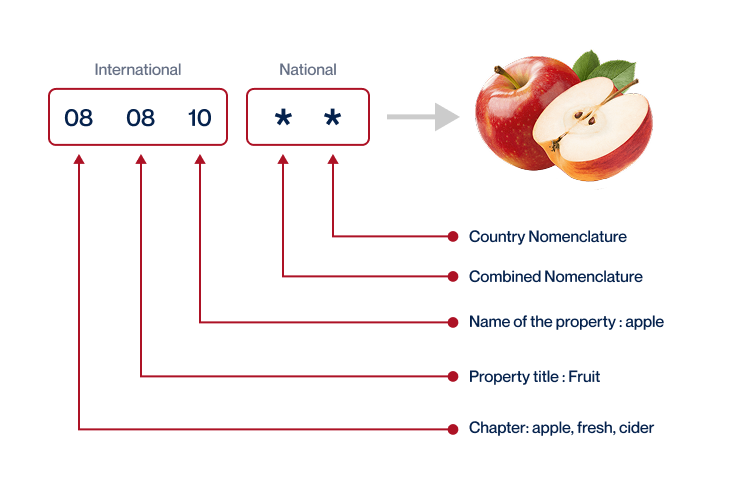
Step 3 – Calculate the Customs Value
Delving into the customs process, ever wondered what customs value means and how it’s not precisely the same as your product’s price? It’s more like an all-inclusive concert ticket that covers the band and the venue. In shipping terms, the customs value is the CIF value: the price tag of your goods (Cost), the journey those goods took from Vietnam to Nigeria (Insurance), and the performance given by your freight forwarder (Freight). The customs officers use this value, in USD, to calculate the amount of duties you’ll owe. So, for example, if your goods are valued at $5000, the freight cost is $2000, and your insurance charges are $500, Your CIF’d be $7500. Easy, right? Now you’re one step closer to understanding the ins and outs of importing in Nigeria!
Step 4 – Figure out the applicable Import Tariff
An import tariff is a tax imposed by a country’s customs authority on imported goods. The objective is to protect domestic industries and maintain economic balance. In Nigeria, the tariff system constitutes five categories, namely: Basic raw materials (0%); Capital goods (0-35%); Intermediate goods (0-20%); Final consumer goods (20-35%); and Specific rates (for certain items).
To identify the tariff applicable to your goods, use the Nigerian Customs Service’s tariff lookup tool. Here’s how:
1. Enter the Harmonized System (HS) code. Let’s use 61091000 – Cotton T-shirts, for example.
2. Then choose Vietnam as the country of origin.
Once entered, the tool will provide a tariff rate. Suppose the tool provides a tariff rate of 25%. If your Cost, Insurance, and Freight (CIF) value are $10,000, your import duty can be calculated as follows:
Import duty = CIF value Tariff rate = $10,000 25% = $2,500
Knowing the correct tariff rate ensures you anticipate potential costs and plan your finances effectively.
Step 5 – Consider other Import Duties and Taxes
Beyond the standard tariff rate, your cargo might be subject to additional costs when importing goods from Vietnam to Nigeria. These could depend on a host of factors including the nature of the product and its country of origin.
For instance, let’s consider the Excise Duty which is levied on certain goods like tobacco and alcohol. The anti-dumping duty is another potential cost, aiming to protect the local markets from foreign goods sold cheaper than their fair value. For example, if a Vietnamese manufacturer sells bicycles at $50 in Nigeria, while its fair value is $70, the Nigerian government can impose anti-dumping duties on these imports to level the playing field. However, these are just imaginary values and real rates might differ.
Perhaps the most significant is the Value-Added Tax (VAT). In Nigeria, the VAT rate is currently about 7.5%. So, for a $1000 consignment, you would be required to pay an extra $75 as VAT.
In summary, understanding all potential costs will help ensure your budgeting is accurate and avoid any unpleasant surprises at the customs. However, since tax and duty rates can change, keeping up-to-date with the latest regulations is essential.
Step 6 – Calculate the Customs Duties
In determining the total amount due for customs duties in Nigeria when importing from Vietnam, it primarily depends on the customs value of the goods. For Example A: If you’re shipping furniture valued at $20,000 with just a customs duty of 20%, your final customs fee would be $4,000.
Adding Value Added Tax (VAT) into the equation makes a noticeable difference. To illustrate, consider Example B: You’re sending textiles worth $30,000 with a 15% customs duty and a 7.5% VAT. Here, first, the customs duty would be $4,500. Then calculate 7.5% of the total amount ($30,000+$4,500), resulting in a VAT of $2,587.50. The combined duty and VAT would total $7,087.50.
Lastly, for Example C, you’re shipping electronics valued at $40,000 with a 20% customs duty, a 7.5% VAT, a 10% anti-dumping tax, and a 5% excise duty. The process would be to calculate each tax based on the accumulated total. Thus, you’d first pay $8,000 customs duty, then $3,600 for VAT, $5,160 for anti-dumping tax, and finally $2,838 in the excise duty. This brings your final fee to $19,598.
At FNM Vietnam, we decipher these calculations for you, ensuring accuracy, legality, and that you’re never overcharged. Get a free quote from us within 24 hours for any customs clearance needs worldwide. With FNM, customs don’t have to be a challenge.
Does FNM Vietnam charge customs fees?
As a customs broker, FNM Vietnam handles your clearance while you foot the official duties and taxes directly to the government. Any fees from us are solely for clearance services – rest assured, no hidden charges! To keep everything transparent, we’ll hand over all customs documentation as proof. Ever paid an invoice and wondered what for? We’ve got you covered.
Contact Details for Customs Authorities
Vietnam Customs
Official name: General Department of Vietnam Customs Official website: http://www.customs.gov.vn/
Nigeria Customs
Required documents for customs clearance
Getting your goods across the border can be a puzzle, especially when it comes to the paperwork. Unravel the mystery with understanding key documents like the Bill of Lading, Packing List, Certificate of Origin, and Documents of Conformity (CE standard). Let’s crack these secrets together and make customs clearance a breeze.
Bill of Lading
Navigating the paperwork in international freight can be tricky, especially when shipping between Vietnam and Nigeria. Think of the Bill of Lading as your cargo’s GPS, tracking ownership changes and making sure your goods end up where they’re supposed to be. It’s an essential bit of documentation that you can’t afford to overlook. Expand your view a bit to consider the Electronic release, or telex release. Faster and more efficient, it cuts through the tape and speeds up document processing. And when it comes to air cargo? That’s where the AWB (Air Waybill) comes into play, adding another layer of security to your shipping process. Don’t shy away from these paperwork steps – they’re your safety net in this complex journey. After all, crossing international borders is an art and these documents are your paintbrush.
Packing List
Picturing yourself as a Vietnamese exporter eyeing Nigeria’s emerging markets, the Packing List is your compass guiding the shipping process. An accurate, detailed Packing List can be the difference between a swift customs clearance or a delayed shipment. Sea or air, it’s a non-negotiable document, containing essential details like the item description, HS codes, weight, and packing measurements. Just imagine, without a detailed Packing List, your consignment of bamboo crafts could be misinterpreted as restricted items, resulting in a hold-up at Lagos port. To avoid such hitches, be meticulous when creating this document — it’s your pathway to gaining trust with Nigerian custom officers, paving your way towards successful shipping from Vietnam to Nigeria.
Commercial Invoice
When shipping goods from Vietnam to Nigeria, your Commercial Invoice is a critical asset. This essential document should include details like the description, quantity, and value of your goods, the shipper’s and receiver’s address, and relevant transaction terms. Proper alignment with data on your Bill of Lading or Air Waybill is vital to bypass setbacks in the customs clearance process. Remember, a minor error can result in costly delays! For instance, imagine a shipment of Vietnamese bamboo products held up because the invoice misstated the quantity. Don’t let such avoidable mistakes slow you down – ensure every detail matches across your shipping documents, keep your descriptions clear, and triple-check your values. That’s how you guarantee swift, hassle-free transport of your goods between these two vibrant economies. With a well-prepared Commercial Invoice, you’re one step closer to successfully navigating the logistics of international trade.
Certificate of Origin
To smoothly navigate shipping goods from Vietnam to Nigeria, you’ll need a Certificate of Origin. It legitimizes your goods by highlighting their manufacturing origins. If you’re shipping Vietnamese lacquerware to Nigeria, your Certificate of Origin pinpoints Vietnam as the source. This reliable document keeps things above-board, offering preferential customs duty rates for certain goods. Bypassing delays, turbulence, and tedious fees is a major prize for your business, right? So, always remember to mention the manufacturing country in this valuable certificate. Evidence of the product’s birthplace expedites the clearance process, bringing your Vietnamese goods to the Nigerian market faster and more efficiently.
Get Started with FNM Vietnam
Prohibited and Restricted items when importing into Nigeria
Cracking the code of what you can and can’t ship to Nigeria can feel like a logistics minefield. Tackling customs rules shouldn’t be guesswork. We’ll shed light on the prohibited and restricted items, making sure your cargo complies and avoids unwanted surprises at the port. Let’s ace your next shipping mission together!
Vietnam – Nigeria trade and economic relationship
Burgeoning since diplomatic ties were established in 1976, the Vietnam-Nigeria relation has grown robust in trade and investment. Major milestones like the Vietnam Trade Office in Nigeria (2004) catalyzed bilateral trade, which has been rising at about 30% annually over the last five years. Key sectors of commodities exchange include agriculture, with primary goods like cashew nuts and seafood. Vietnam’s investments in Nigeria’s telecommunications and education sectors have brought mutual growth. As of 2023, the trade volume reached a noteworthy $500 million, up from $251.6 million in 2012. This dynamic relation promises ample opportunities for businesses eager to exploit the Vietnam-Nigeria economic synergy.
Your Next Step with FNM Vietnam
Additional logistics services
Warehousing
Finding dependable warehousing in Vietnam or Nigeria can be daunting. If you're shipping temperature-sensitive items like Vietnamese lychees or Nigerian ginger, a controlled environment is critical to maintain quality. But, worry not! More sturdy storage solutions await you. Dig into the nitty-gritty on our dedicated page: Warehousing.
Packing
In the realm of Vietnam-Nigeria shipping, impeccable packaging matters. It keeps your goods secure, ensuring no customs hiccups or damage during transit. Think fragile silk from Hanoi or robust car parts from Lagos - each demands a unique packaging approach. Secure the right specialist and watch them tailor solutions to your product's needs. Dive deeper into freight packaging at our dedicated page: Freight Packaging.

Transport Insurance
Shipping your goods can understandably lead to a few sleepless nights, but with customized cargo insurance, those worries are a thing of the past. Unlike fire insurance, which only covers damage from fires, cargo insurance protects against the unforeseen - from theft to transport mishaps. Think of a toppled container in turbulent seas, or a high-value consignment missing at a hectic port; cargo insurance mitigates those risks. Scenarios like these underline the need for such prudent foresight. Dig deeper into this subject on our dedicated page: Cargo Insurance.
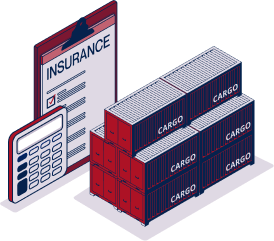
Household goods shipping
Moving personal effects like Grandma's china or that bulky armchair from Vietnam to Nigeria? Our seasoned team ensures each item is wrapped, packed, and transported with the utmost care and flexibility. We understand the importance of relocating prized possessions intact. More info on our dedicated page: Shipping Personal Belongings.
Procurement in Thailand
Taking your business global? FNM Vietnam transforms your sourcing needs into seamless realities. We find reliable suppliers across Asia and Eastern Europe, tackle linguistic hurdles, and pilot you through the procurement journey. Think high-quality goods without the sourcing headaches. Aspirations to realities - that's our promise. More info on our dedicated page: Sourcing services

Quality Control
Indeed, quality control is pivotal in mitigating risk when shipping from Vietnam to Nigeria. Think of it as a security checkpoint, catching potential flaws that could affect your product's reception. For example, a deployment of inspections during manufacture of ceramics ensures no chipped or cracked items make it into your shipment. This service guarantees adherence to standards, saving you resource-intensive hassle down the line. Dive deeper into this topic on our dedicated page: Quality Inspection.

Conformité des produits aux normes
Ensuring your goods meet destination regulations can feel like a maze, but it's absolutely essential. That's where our Product Compliance Services come in. We conduct laboratorial tests and certifications, ensuring your shipment is primed for approval. Think of us as your pair of scissors in this bureaucratic paper jungle!
